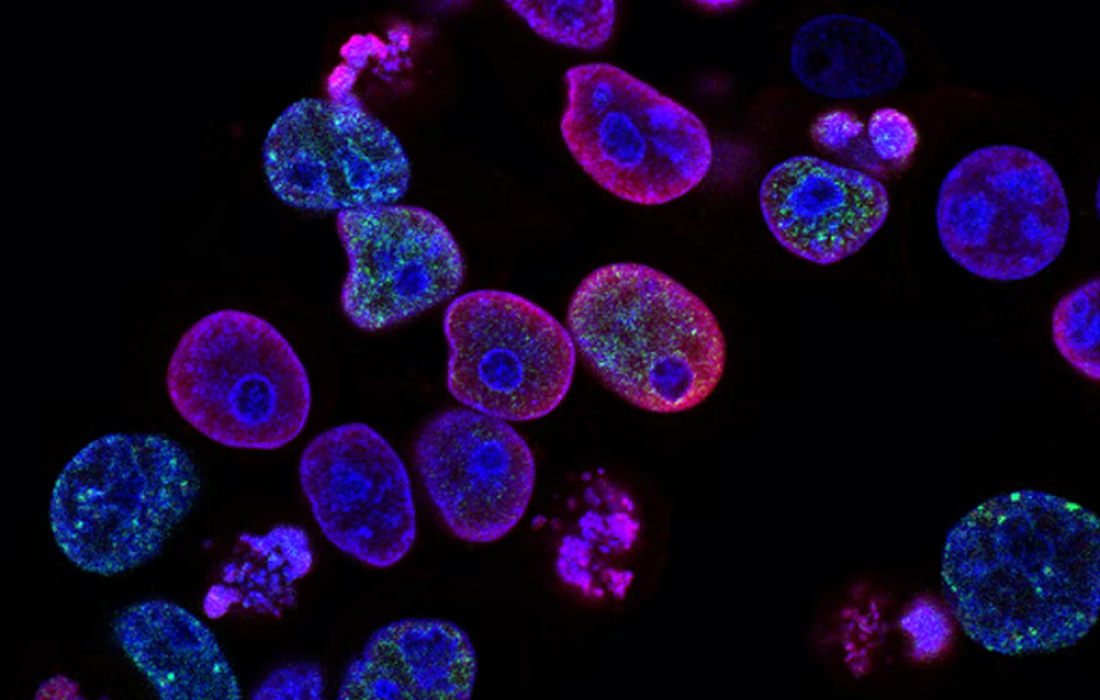A pioneering study led by UCL and the National Institutes of Health (NIH) scientists has revealed why a common genetic variant worsens disease outcomes for people with amyotrophic lateral sclerosis (ALS) and frontotemporal dementia (FTD). Amyotrophic lateral sclerosis (ALS) and frontotemporal dementia (FTD) are devastating adult-onset neurodegenerative disorders with shared genetic causes and common pathological […]
Author Archives: Francisco Fernandez, MD
A new test developed at Washington University School of Medicine in St. Louis has proven high accuracy in detecting early signs of Alzheimer’s disease in a study that involved 465 participants. The study was published in the journal Neurology. The research team behind the study aimed to determine the diagnostic accuracy of a plasma Aβ42/Aβ40 […]
The COVID-19 pandemic has caused an enormous strain on societies and healthcare systems. Although women are infected, they appear to be protected from poor outcomes when compared with men even after adjusting confounding factors. In a new study, researches from Sweden tried to determine wheter aufmentation of estrogen in postmenopausal women decreases the risk of […]
Pancreatic cancer is often difficult to diagnose. This is because there are no validated, specific screening tests that can easily and reliably find early-stage pancreatic cancer in people who do not show symptoms. Furthermore, people with pancreatic cancer often do not have clearly identified symptoms in the early stages of the disease. This means it […]
Cancer is among the leading causes of death worldwide. In 2018, there were 18.1 million new cases and 9.5 million cancer-related deaths worldwide. By 2040, the number of new cancer cases per year is expected to rise to 29.5 million and the number of cancer-related deaths to 16.4 million. It has been hypothesized that vegetarian […]
Erectile Dysfunction Erectile dysfunction (ED) is an inability to attain or maintain adequate penile erection for successful vaginal intercourse, leading to sexual and relationship dissatisfaction. To combat ED, various surgical and non-surgical approaches have been developed in the past to restore erectile functions. These therapeutic interventions exhibit significant impact in providing relief to patients; however, […]
A new study by researchers at Caltech, has discovered that a small-molecule metabolite, produced by bacteria in the gut, can travel to the brain and increase the anxiety levels in mice. The study helps uncover a molecular explanation of how the gut interactions with the brain, also known as gut-brain axis, can influence emotional behaviors. […]
Non-neovascular age-related macular degeneration (NNAMD) is a major medical condition that affects millions of people in the Western world. The use of Macular translocation surgery, transplantation of autologous adult retinal pigmental epithelial (RPE) cells, and injection of suspensions of human embryonic stem cell (hESC)-derived RPE cells have been pursued as potential treatments. Recently, a team […]
Diabetes mellitus (DM) is a metabolic disease in which hyperglycemia is observed in patients over long periods of time. It is generally classified into four major forms: gestational diabetes, maturity-onset diabetes of the young (MODY-1), type 1 diabetes mellitus, and type 2 diabetes mellitus. Type 2 diabetes mellitus (T2DM) is the most predominant type of […]
Mesenchymal stem cells (MSCs) differentiate into different cell types and have immunomodulatory and paracrine effects. These cells can be obtained from different adult tissues, including umbilical cord, which is an excellent source of MSCs. This tissue can be obtained during vaginal or cesarean delivery without any risk for neither the baby nor the mother. There […]










